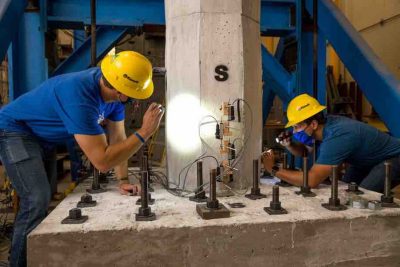Sources: Concrete Industry Management National Steering Committee; CP staff
The South Dakota State University Jerome J. Lohr College of Engineering will soon offer a four-year bachelor of science degree in Concrete Industry Management. The Brookings school will bring the program to prospects across the Midwest and complement the established CIM venues of Middle Tennessee State University, Murfreesboro; New Jersey Institute of Technology, Newark; Texas State University, San Marcos; and, California State University, Chico.

“The CIM degree is a really nice fit for us,” says SDSU Department of Construction and Operations Management Leader Teresa Hall. “If you look at a Venn diagram, you have construction management and operations management and the CIM degree comes up between. While the degree is very focused on a particular material, it’s one that goes hand in hand with construction.”
The announcement follows a six-month selection process by the CIM National Steering Committee and North Central Region (NCR) Patrons, which have committed approximately $1.5 million to SDSU over five years to develop the degree program and assist in employing a director, recruiter and laboratory manager.
“We are excited to be selected as the university to fill the needs of the concrete industry, not only in South Dakota, but throughout the entire North Central Region,” observes SDSU President Barry Dunn. “The program supports our mission as a land-grant university of addressing workforce needs in the communities of South Dakota and beyond. Students will become knowledgeable in concrete technology and techniques, capable of managing people and systems, skilled in technical sales and expected to advance to industry leadership positions.”
“The concrete industry recognized the need for the CIM program in the Midwest,” notes NCR Patrons Chairman Thor Becken (Cemstone Products). “Once the decision was made to develop a CIM program in the region, it took two years of planning and gaining industry member support before a search committee began interviewing various universities about potential interest in offering a CIM degree.”
The curricula provides graduates with both technical knowledge and management expertise to be hired as entry- or middle-level managers. “The goal is to develop the future leaders of the concrete industry,” Becken adds. “This is important because our industry, like many, is aging. Higher-level managers are starting to retire and we’re looking for the next generation of leaders.”
“SDSU’s experience with public/private partnerships, combined with how the Lohr College of Engineering stresses developing programs that engage industry needs, were critical in our decision making,” explains CIM National Steering Committee Executive Director Eugene Martineau (U.S. Concrete, retired). “It was obvious that working with industry is not something new to the university. During our visit to SDSU, it was evident that the president and provost down through the dean and department heads were all-in for establishing a CIM program.”